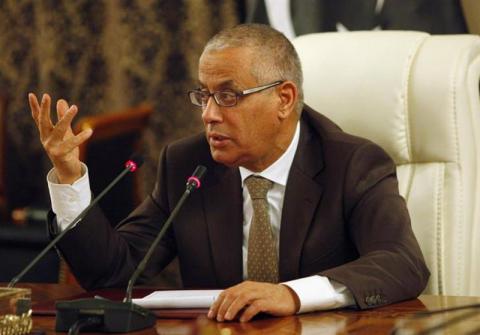Advertisement
Libya PM Hopes Oil Ports Will Reopen On Sunday
TRIPOLI (Reuters) - Prime Minister Ali Zeidan expects Libyan oil ports seized by a group demanding autonomy for the country's east would reopen on Sunday, state news agency Lana said on Saturday, although it was unclear if the government had concluded a deal with the group.
Zeidan also promised that oil sales would be properly accounted for going forward, one of the demands of the group, which has seized three eastern ports that previously accounted for around 600,000 barrels a day in exports.
On Tuesday, the autonomy group said it would end its hold on the ports on Sunday if Tripoli allowed it to take a share of oil sales and verify claims of oil sale corruption.
Abd-Rabbo al-Barassi, prime minister of the group's self-declared government, said on Friday talks would be held with government officials on Saturday to see whether Tripoli would meet the demands. Otherwise it would sell crude on its own.
The group was not immediately available to comment early on Saturday.
Zeidan did not mention any talks with the group but said the government would make sure that oil sales were properly monitored by technical systems.
"Several committees have been formed and will be formed to follow up on the sale of oil and its monitoring," Zeidan said, according to Lana.
Zeidan "thanked all who joined calls and a dialogue to end this problem," the agency said, referring to the port blockages.
He said exports from the seized ports would resume on Sunday
Officials in Tripoli have previously refused to recognise the self-declared eastern government and warned that the central government would attack any tanker trying to load oil at seized ports.
Libya is in turmoil with the government struggling to rein in militias that helped topple Muammar Gaddafi in 2011 but kept their guns and now control parts of the North African country.
A mix of militias, tribesmen and officials have seized oilfields and export terminals across the country, bringing exports down to 110,000 barrels a day from more than 1 million bpd in July.
The eastern autonomy movement, led by militia leader Ibrahim al-Jathran, has occupied since summer the Ras Lanuf, Es-Sider and Zueitina ports to back its demands.
Public pressure has been rising on Jathran and other oil protesters to end blockages as Libyans grow tired of outages, daily fuel shortages and prospect of a budget deficit.
Oil exports are Libya's lifeline and almost the only source of the dollars needed to fund imports of wheat and other basic foodstuffs. The government has warned it will not be able to pay public salaries if oil strikes continue.



















Add new comment